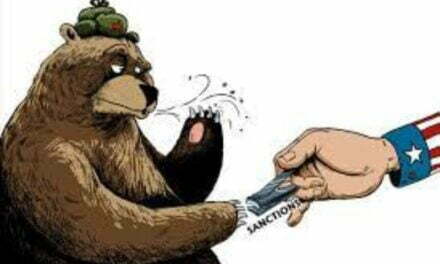
Will China’s President Xi go too far?
After nearly 40 years of slow reform in China, it is indisputable that President Xi Jinping is taking the Middle Kingdom back to the days of the Cold War. We may not be there yet, but the chill is in the air.
Since the days when President Nixon sat in that over-stuffed armchair next to Chairman Mao, China has evolved into a more open country – with a lot of free-market reforms. Foreign business can now essentially own their enterprises without a mandatory Chinese partner. Business profits are easier to take out of China. Tourism – virtually nonexistent in the old day – is a booming part of the Chinese economy.
Government oppression began to disappear like all those blue Mao uniforms universally worn by the people in the past. Internet access put the average Chinese citizen in personal communication with people throughout the world.
The progress was not perfect. There was a long way to go to match western standards of freedom – but at least things were moving in the right direction. That is until President Xi took over. It would not be an inappropriate comparison to the situation with Russia and the rise of President Vladimir Putin.
Xi is as determined as he is affable. He has done what no Chinese leader has done since Mao. He has manipulated the laws and rules to make him a dictator with a lifetime appointment. He did this in the good old fashion way. He manipulated the loyalty of the powerful bureaucrats and military leaders. That is what Putin did in Russia and what the Kim family has been successfully doing in North Korea for decades.
This does not mean that Xi is one hundred percent free of any threats to his power – but only that the odds are currently in his favor for a long reign.
Xi’s determination to be the international tough guy has been seen in his crackdown on the Internet, his program to monitor the activities of more than 1.6 billion people through facial recognition and the policy of social grading. Xi has made the cellphone a device that makes it almost impossible for citizens to function without it – and for Beijing to use it as a technological umbilical cord.
Xi has launched an aggressive influence program over Chinese nationals and ex-patriots in the United States. He intimidates by threatening passports and family back home. He has increased the recruitment and placement of spies in the United States – and other western nations.
China’s unexpected tough stand on trade has prolonged a mutually damaging trade war – although Trump is likely to win that one eventually. Unlike Maoist China, the Xi foreign policy is attempting to extend economic hegemony over third-world nations in Asia, Africa and South America. Xi is not an isolationist.
Under Xi, China has kicked off an arms race with the west unlike anything seen since the old Soviet/American contest. Xi uses his increasingly powerful military as a cover for expanding China control over the South China Sea – and has created artificial island military bases to press his claim.
Xi has now discarded the idea that Hong Kong would remain a quasi-independent province under a One China/Two Systems policy. In the face of increasing pro-democracy protests, Xi has enacted a Hong Kong security act that will literally crush the freedoms Hong Kongers have enjoyed since the British returned the island to China in 1997.
Xi is a cautious despot, but he may assume that military force can easily crush any resistance to his edict. But there is a chance – and outside chance – that Xi may have gone a bit too far.
The pro-democracy movement in Hong Kong was not the noisy rattling of a small minority. It was … and is … a movement backed by the vast majority of the citizens. In one march, at least two million people took part. That is approximately one-third of the entire population. That would suggest that well over half of the population strongly oppose Beijing’s takeover.
With those kinds of numbers, you cannot count on the police and security forces to stay loyal to Beijing. That is why Xi wants to send in his own military.
With the deep feelings of the people of Hong Kong and the powerful determination of Xi, there seem to be only two possible results in the near future. Hong Kong freedom will be quickly crushed by brute and fatal force or a Hong Kong civil war will ensue.
You can bet that the folks in Taiwan are paying very close attention. And you can also bet that the recent deal for the U.S. to sell weapons to Taiwan is a direct response to Xi’s adventurism.
If Xi orders a bloody oppression of Hong Kong on top of China’s blame for the deadly Covid-19 pandemic, the Chinese president may wind up being the pariah of the world. Like many power-hungry dictators, his unfettered ambitions may be his undoing.
So, there ‘tis.




























ROFL. That ass-think DANG-er is still sore - he shows it here today.
Oh you used Wiki as a source, haha. A source that anybody can log in and edit. But the claim…
What 500 dead babies? Your numbers lack evidence. Present some. Putin has done zero damage to the country. Demmies have…
Well if it was stupid to respond to, congratulations you have passed the stupidity test – since you responded. :)…
And you’re still here?